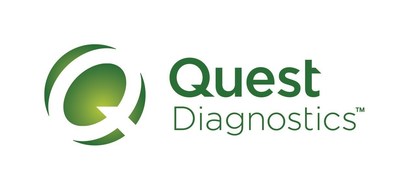New Study Demonstrates Accuracy of Two Quest AD-Detect® Tests for Alzheimer's Disease Diagnosis
Rhea-AI Summary
Quest Diagnostics (NYSE: DGX) published a study showing two AD-Detect blood-test panels accurately identify Alzheimer’s pathology in symptomatic patients. In an intended-use cohort of 215 patients (46% amyloid PET-positive), both panels met a 91% sensitivity and 91% specificity threshold used for confirmatory testing. The three-biomarker panel (AB42/40 + p-tau217 + ApoE4) yielded PPV 88%, NPV 91% and a 10% indeterminate rate. The two-biomarker panel (AB42/40 + p-tau217) showed PPV 87%, NPV 91% and a 15% indeterminate rate. Quest launched the two-biomarker panel in April 2025 and plans a version of the three-biomarker test in Q1 2026.
Results meet recommended thresholds from Alzheimer's Association and CEOi for confirmatory blood-based tests, suggesting potential to reduce reliance on PET or CSF follow-up.
Positive
- Sensitivity 91% in intended-use symptomatic cohort
- Specificity 91% in intended-use symptomatic cohort
- PPV 88% for three-biomarker panel at 46% prevalence
- NPV 91% for both panels
- 10% indeterminate rate for three-biomarker panel (meets CEOi guidance)
- Two-biomarker panel launched April 2025; three-biomarker version planned Q1 2026
Negative
- Indeterminate 15% for two-biomarker panel (near CEOi upper limit)
- Predictive values depend on prevalence; PPV may decline in lower-prevalence settings
- p-tau217 measured via third-party immunoassay, not proprietary method
News Market Reaction
On the day this news was published, DGX declined 1.05%, reflecting a mild negative market reaction.
Data tracked by StockTitan Argus on the day of publication.
The Quest AD-Detect® blood-based test panels deliver confirmatory accuracy, potentially supporting reduced reliance on PET-imaging confirmation
Conducted by scientists with Quest Diagnostics (NYSE: DGX) and 1Florida ADRC, University of
"This study demonstrates that scalable blood-based testing can meet rigorous standards for establishing Alzheimer's disease pathology, supporting diagnosis and advancing patient care for Alzheimer's disease in the intended use patients," said Michael Racke, MD, a board-certified neurologist and Senior Medical Director of Neurology, Quest Diagnostics. "Our analysis also suggests that blood-based testing can achieve a rate of indeterminate, or unclear, results, as low as
The study evaluated two blood-based tests developed by Quest Diagnostics. One of the tests produces a likelihood score based on results of circulating blood levels of the biomarkers amyloid beta (AB) 42/40, phosphorylated tau (p-tau) 217 and ApoE4 proteotype (reflecting inherited high-risk APOE4 alleles). Quest plans to launch a version of this test in the first quarter of 2026. The study also evaluated a test that includes AB 42/40 and p-tau217 but not ApoE4. The company launched a version of this test (called AD-Detect™ ABeta 42/40 and p-tau217 Evaluation panel) in April 2025.
Both tests were evaluated at
With cutoffs of
In addition, the indeterminate rate was
The findings were first presented during an oral presentation at the American Academy of Neurology (AAN)'s Annual Meeting in San Diego in April 2025.
Quest performs AB 42/40 and ApoE4 proteotype using proprietary tandem mass spectrometry techniques and p-tau271 using a third-party immunoassay. Quest AD-Detect tests are intended for use by physicians to evaluate patients with symptoms of cognitive impairment or Alzheimer's disease.
Nearly 7 million Americans have been diagnosed with Alzheimer's disease, the most prevalent form of dementia, a number projected to reach 14 million by 2060. Approximately 12
Quest is committed to developing innovative advanced diagnostics to aid in evaluating Alzheimer's disease and other brain diseases. For more information, visit www.QuestForTheCure.com.
About Quest Diagnostics
Quest Diagnostics works across the healthcare ecosystem to create a healthier world, one life at a time. We provide diagnostic insights from the results of our laboratory testing to empower people, physicians and organizations to take action to improve health outcomes. Derived from one of the world's largest databases of de-identifiable clinical lab results, Quest's diagnostic insights reveal new avenues to identify and treat disease, inspire healthy behaviors and improve healthcare management. Quest Diagnostics annually serves one in three adult Americans and half the physicians and hospitals in
![]() View original content to download multimedia:https://www.prnewswire.com/news-releases/new-study-demonstrates-accuracy-of-two-quest-ad-detect-tests-for-alzheimers-disease-diagnosis-302594686.html
View original content to download multimedia:https://www.prnewswire.com/news-releases/new-study-demonstrates-accuracy-of-two-quest-ad-detect-tests-for-alzheimers-disease-diagnosis-302594686.html
SOURCE Quest Diagnostics








